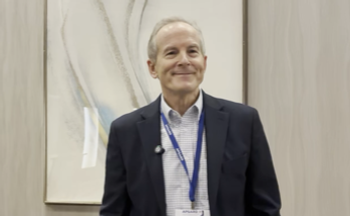
Teaching Resilience at the 2025 APA Annual Meeting
Resilience: how does it improve overall health? Helen Lavretsky, MD, shared her thoughts at the 2025 APA Annual Meeting.
Across her many sessions this weekend, Helen Lavretsky, MD, MS, is striving toward 1 goal, in line with the theme of the 2025 American Psychiatric Association (APA) Annual Meeting, lifestyle psychiatry: teaching resilience.
Lavretsky uses her skills to develop novel strategies to prevent late-life mood and cognitive disorders, which she says "requires a lot of new information." She has dedicated much of her research to lifestyle medicine and psychiatry, in areas such as yoga, tai chi, chi gong, meditation, art, and exposure, all with the goal of better understanding what it provides for our brains, bodies, and souls.
"It's really whole person health we have to strive for. That is what will sustain us," said Lavretsky.
Her sessions this weekend included a breathing workshop, organized by residents, which sought to teach breathwork techniques to help improve psychiatric care. Lavretsky also presented on key topics such as innovations in global brain health, innovative strategies for advancing training in mental health care, and cognition in older adults.
"Aging starts at conception," said Lavretsky. "So each of us can do lifestyle-related practices like good sleep, healthy diet, sufficient exercise, social engagement, enjoying nature to improve our brain health and mental health."
The key to building resilience this for Lavretsky is returning to spirituality, both for patients and clinicians. This could simply mean a connection with the authentic self, uninfluenced by society or others. "It is met with a lot of interest. I find that our younger people are very open to these kind of practices like yoga, breathing, spiritual beliefs, and they're willing to learn."
"I hope my contribution will provide important necessary tools that are not provided at psychiatric residencies at this time," she concluded.
Dr Lavretsky is a professor in residence in the Department of Psychiatry at UCLA. She is president of the American Association for Geriatric Psychiatry, a distinguished fellow of the American Psychiatric Association and the American Association for Geriatric Psychiatry, and a fellow of the American College of Neuropsychopharmacology. She is also on the Editorial Board of Psychiatric Times.
Newsletter
Receive trusted psychiatric news, expert analysis, and clinical insights — subscribe today to support your practice and your patients.







